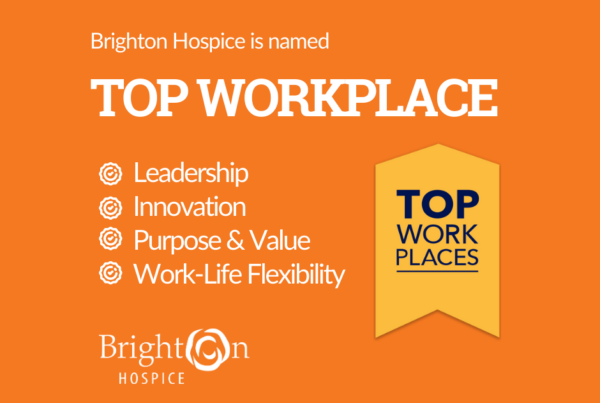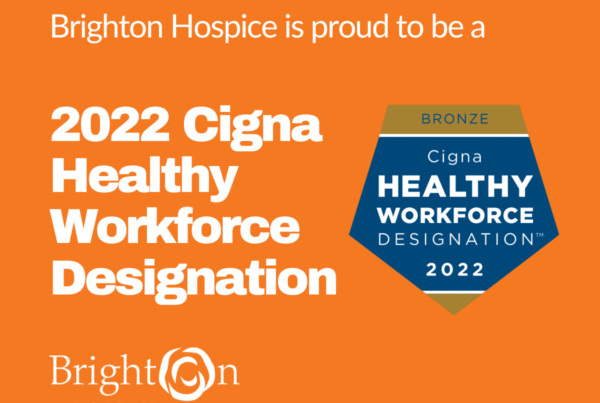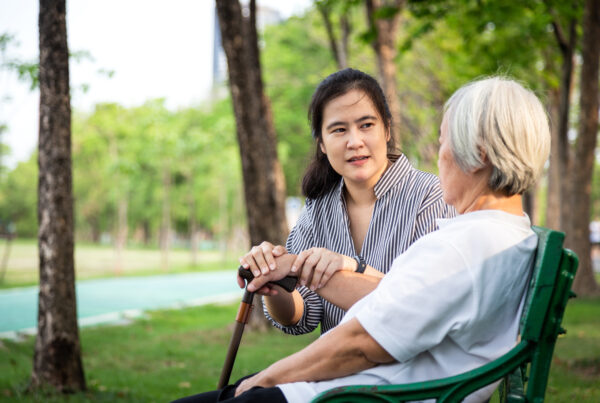Hospice Care: Comfort Not Fear
By: Debi Poulsen RN, CHPN at Brighton Home Health and Hospice in Utah
I have worked in hospice care for 13 years and in that time I have found that hospice is vastly misunderstood. Most people believe that hospice is for the last few days of life, which it is; however, some patients we have for quite a long time. As long as they continue to decline, even very slowly, they can maintain their hospice status.
Hospice Care Offers Quality of Life
When a Primary Care Physician gives a person a diagnosis of approximately six months to live with a terminal illness, they are usually offered the option of hospice care. As a hospice team, we are there to assure physical, spiritual and mental comfort at the time a person is passing. Hospice care, however, encompasses so much more than basic care during those last few days and hours of life.
Hospice, like those in the medical world, cannot promise quantity of life, but with hospice care on board we can offer quality of life for whatever days, months or years a person has left to live. Our job is to implement that very special quality of life with trained, compassionate people who know how to bring peace of mind to the individual and their loved ones. Each patient is introduced to their RN-Case Manager, their own nurse, who comes to know the individual, their likes, dislikes and involves them in their own personal care. This is all part of that person’s life story and we try very hard to allow them to direct that story through active listening and fulfillment of their needs.
Show Love by Allowing Choices
When a person approaches the end of life, their appetite changes. To many families, a recurring belief we see is “food is love”, and many feel they have to feed the patient to keep him/her alive. We help the loved ones understand that the brain is slowing the appetite as a natural part of the process. The more loving thing may be to allow the patient the right to choose to eat or not. Always offer food but don’t force it. In hospice care, the patient is also involved in their pain, anxiety and agitation management, and the many possibilities for medications in these areas. When possible, they can even decide whether they want to be more alert or sleeping more during their days. Each area of care is discussed to invite the patient’s and families’ own desires at this important time.
Our hospice offers a highly-trained and competent hospice aide to assist the patient with their daily personal needs. This helps to support the strenuous efforts of the patient’s caregivers and provides safe, effective assistance for the patient, as they get know their aide each morning. The patient will receive visits and access to a licensed clinical social worker, as there are many legal questions regarding end of life that can best be answered by an experienced professional. A non-denominational chaplain is also part of the team, and lends grief and coping support to patients and families.
How Can Hospice Care Help You and Your Loved One?
As a hospice, our goal is to do everything we can to provide a calm, pain-free death, as well as education to patients and families with which to attain this peaceful end. I have only touched on the surface of the areas we can help with, and I urge you to allow a member of our hospice care team to explain to you how we can help you and your loved one.
If you have a loved one in need of hospice care in Utah, Minnesota, Nevada, or Oregon please contact us.




